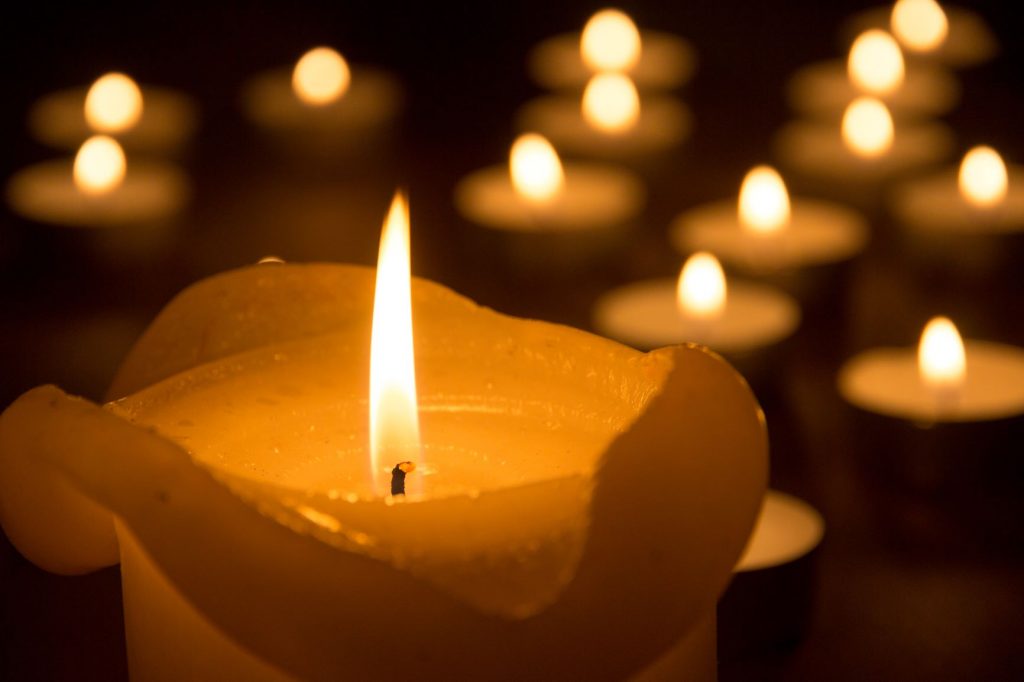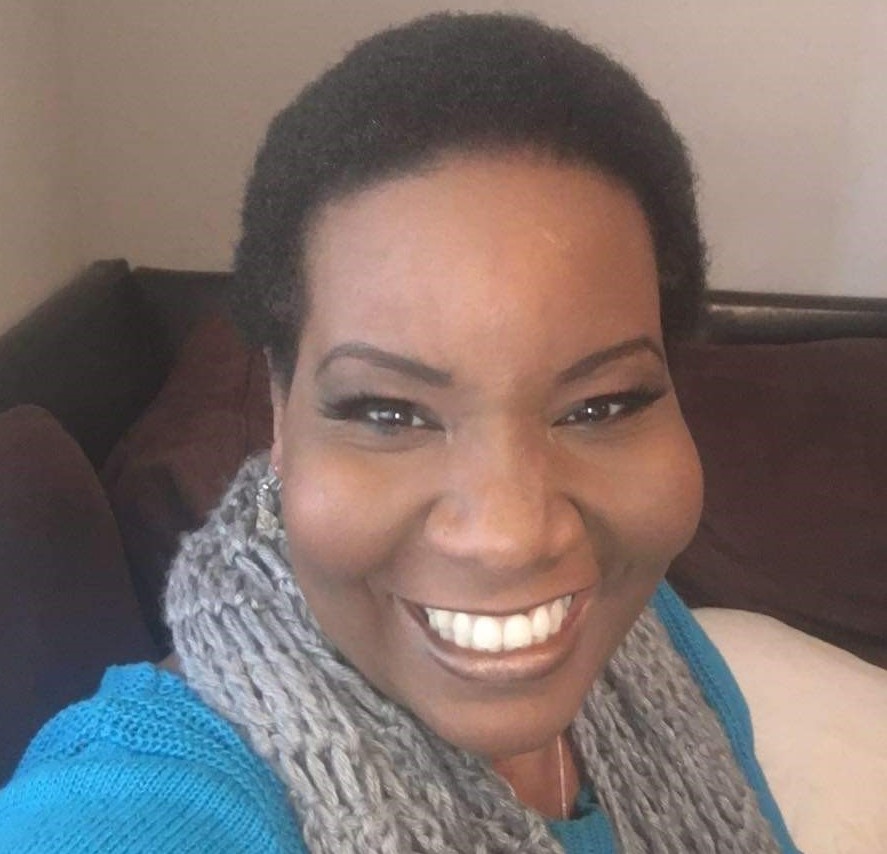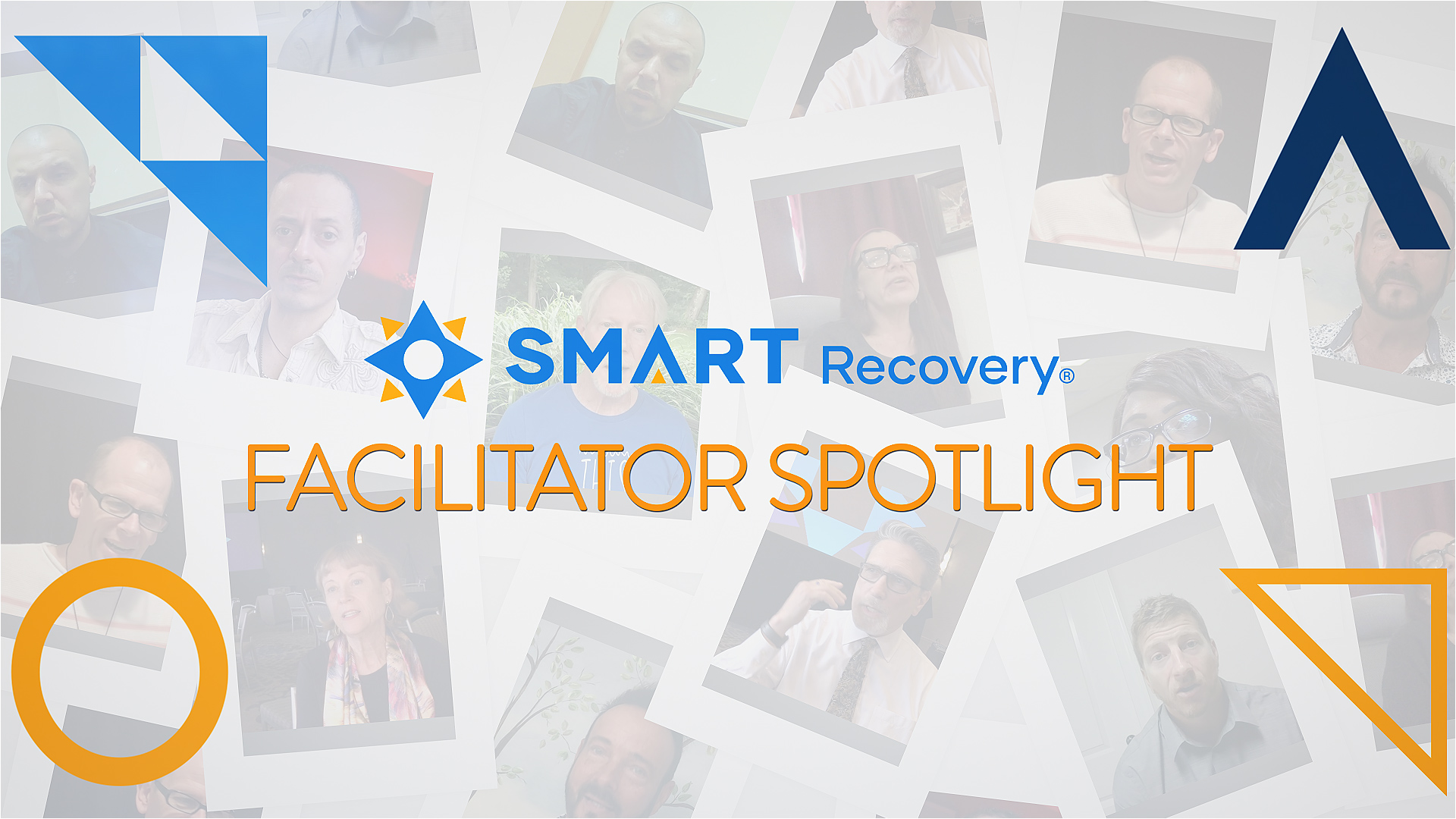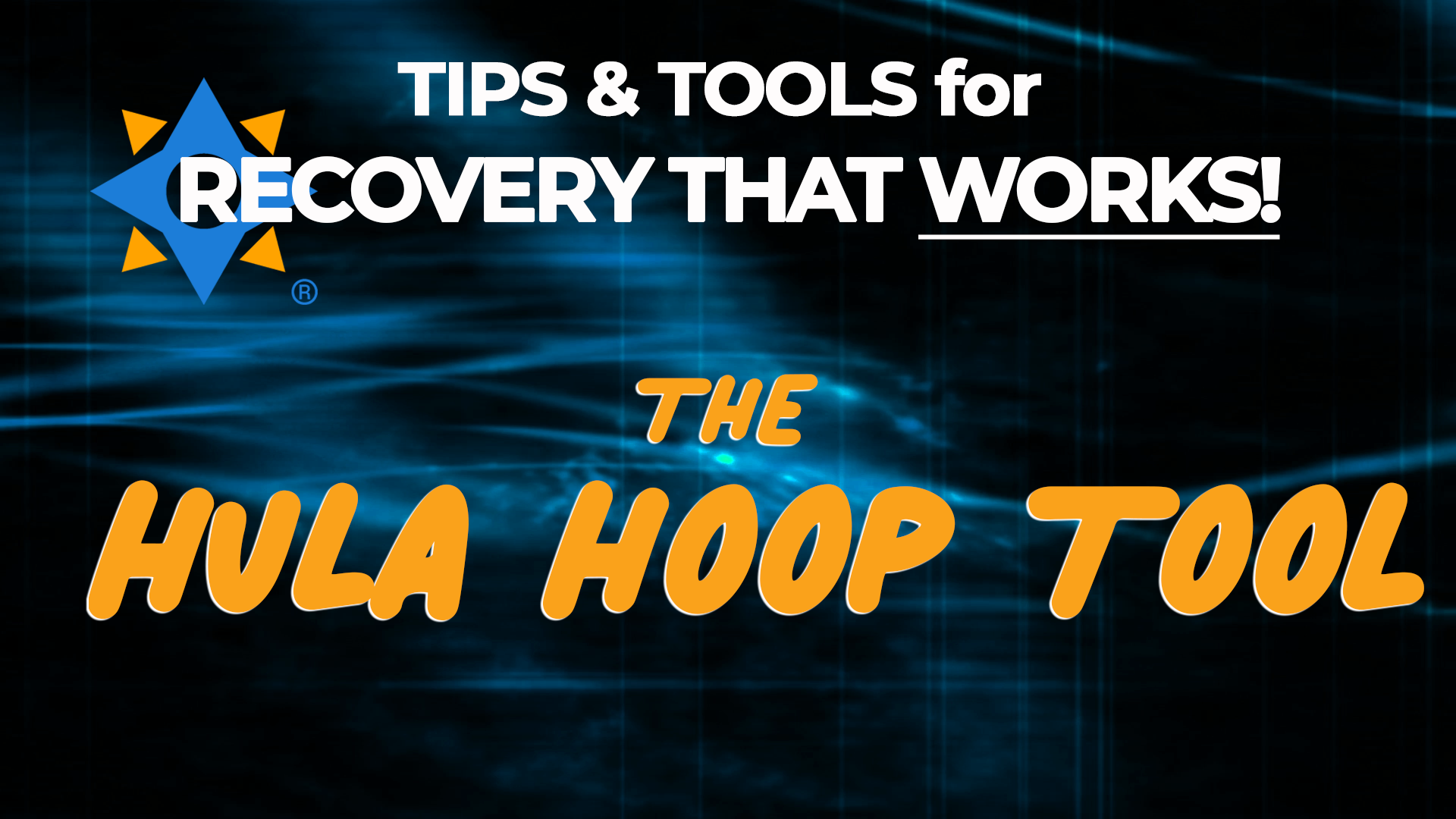
I would tell them straight, recovery does not happen in isolation
Recovery group member
We know mutual aid works to help people with substance use disorders achieve their goals. The recent Cochrane Review[1], which analysed the evidence for Alcoholics Anonymous reported pretty impressive results. John F Kelly, Keith Humphreys and Marica Ferri “determined that AA was nearly always found to be more effective than psychotherapy in achieving abstinence. In addition, most studies showed that AA participation lowered health care costs.’[2]
Although the focus of the research has been more on AA than other types of mutual aid, Humphreys said that their review was ‘certainly suggestive that these methods work for people who use heroin or cocaine’. In fact, these days, in my practice, it’s much more common to see people with problematic poly-drug use, so it would help to know more about the range of supports available.
So, we know that mutual aid works to help people achieve their goals, but how much do we know about how it works? In his 2008 review[3], Rudolph Moos identified ten key ‘ingredients’ at the heart of the process in 12-step groups.
- Bonding
- Direction
- Structure
- Observation and imitation of norms and role-models
- Expectation of positive and negative consequences
- Involvement in protective activities
- Effective rewards
- Identification of high risk situations and stressors
- Building self efficacy/confidence
- Developing coping skills
So, it looks as if we know quite a bit about how it works too, but we are still learning new things.
Some of this new learning was captured in a recently published study[4] from the UK. Hannah Rettie, Lee Hogan and Miles Cox wanted to know if such processes might also apply in non-12-step groups and whether there might be anything else relevant that wasn’t on the above list. They had the sensible notion to ask the people who had experience of such groups how important they felt these components were.
Using social media, flyers and active recruitments through the groups, they attracted 151 participants from 30 groups, including but not limited to, 12-step, SMART Recovery and non-structured lived experience community groups. Participants had to be alcohol or drug free, with a previous history of dependence and regular attendees. On average the subjects had been members for more than two years and had a mean age of just over 42 years. Thirty percent had previously had an alcohol problem, 20% a drugs problem and the rest had used both alcohol and drugs problematically.
They asked the participants to think about their group and to score how important each ingredient on the list was to them and how much that component was represented in the group they were a member of. They were also asked a couple of open questions. The researchers divided one of the ingredients (no. 4) into two – ‘presence of role models’ and ‘following a sober lifestyle’ and added another ingredient ‘giving back to others’.
They teased out five pertinent themes from the open-ended questions:
- Perspective taking: e.g., getting a new angle on a problem through discussion with others
- Being connected to others: e.g., strong bonds, reciprocal support, not doing it alone
- Developing skills: e.g., coping skills, confidence, useful outside of the group too
- The value of group activities: e.g., replacing using and drinking time, hobbies and areas of interest
- A change in the self: e.g., from rock bottom to recovery, gaining hope, new lease of life
These themes were apparent in both 12-step and non-12-step groups.
Testing out the list of key components of recovery success, the researchers found that across the variety of groups, every ingredient was both offered by the group and rated highly by the group members. Interestingly ‘gaining rewards’ was not rated as highly as other factors. The type of group, length of time of membership and time in recovery did not influence the ratings.
The team updated the original table of important components of recovery groups to look like this:
- Bonding and support
- Goal direction
- Structure to follow
- Following a sober lifestyle
- Available role models
- Expectations of positive and negative consequences
- Involvement in protective activities
- Effective rewards
- Identifying high-risk situations
- Building self-confidence
- Developing coping skills
- Giving back
- Presence of like-minded individuals
- Developing self-awareness and reflection skills
Encouragingly, these findings suggest universal experiences in mutual aid and lived experience recovery organisations, though not whether these experiences translate into longer term quality of life and sobriety outcomes relating to type of support. It’s important to note that the authors acknowledge potential bias due to recruitment methods, so this might not in fact be applicable to all recovery groups, though it rings true. I did wonder if there was crossover in the sample, given that it’s possible to be a member of a 12-step group, a SMART Recovery group and an activity-focussed recovery group at the same time.
I like this research. I like the respect the researchers have for those with lived-experience (‘true experts’) – something that’s not universal. Mutual and and wider lived experience recovery organisation research is pretty rare in the UK. This really helps add to our understanding of what the important features in recovery groups are. It adds to our previous understanding. It also gives support to the ‘many pathways to recovery’ perspective.
Connection is at the heart of the recovery process. In my experience, many recovering people are members of more than one lived experience recovery organisation, including mutual aid. I believe that every extra recovery connection is likely to advance and support an individual’s recovery and help them flourish, and that we should be promoting and actively connecting service users to a diverse range of groups.
The researchers’ bottom line:
The current study provided support for Moos’ original components, and identified that these components are universal across a diverse range of recovery groups, and stable across time. The findings offer an in-depth, person-focused perspective into what makes recovery groups successful, utilising the voices of the true experts of addiction recovery groups.
Rettie, Hogan & Cox, 2021
Continue the discussion on Twitter: @DocDavidM
[1] Kelly JF, Humphreys K, Ferri M. Alcoholics Anonymous and other 12‐step programs for alcohol use disorder. Cochrane Database of Systematic Reviews 2020, Issue 3.
[2] https://med.stanford.edu/news/all-news/2020/03/alcoholics-anonymous-most-effective-path-to-alcohol-abstinence.html
[3] Moos RH. Active ingredients of substance use-focused self-help groups. Addiction. 2008 Mar;103(3):387-96.
[4] Hannah. C. Rettie, Lee. M. Hogan & W. Miles. Cox (2021): Identifying the Main Components of Substance-Related Addiction Recovery Groups, Substance Use & Misuse
Guest blog by Matt/M11106
On March 16, 2021, Robert Long was charged with killing 8 people, 6 of them Asian women, in Acworth and Atlanta, Georgia. SMART recognizes the deeply intertwined nature of the racism and misogyny that played a role in this tragedy. We mourn the loss of life and send our deepest condolences to the victims’ families, friends, and communities. We are taking this occasion to publish a post by the facilitator of our meeting on Sexual Maladaptive Behaviors.

An Open Letter to Men Who Struggle with Sexual Maladaptive Behaviors:
According to the Washington Post, Robert Long told police that he has “a sexual addiction” and the massage parlors and spas he targeted were “a temptation for him that he wanted to eliminate.” This tragedy has made me think of how SMART could have helped Long better manage his impulses. I believe SMART can help Long and any other man struggling with these thoughts and behaviors.
I wish that Long had attended some of our SMART meetings on sexual maladaptive behaviors. As it stands, he is charged with eight counts of murder, so it is too late for our meetings to help him and prevent the tragedy from occurring. But even in jail, a man might want to find a calmer mental state regarding his maladaptive behaviors.
If Long had attended, he might have shared that he wanted to remove temptation at massage parlors. He might have said he was struggling with shame around his sexual behaviors, as his roommates from rehab have said.
In SMART, we often manage temptations by avoiding the situation, escaping the urge, or substituting healthy activities. There will always be temptations for us, but we can learn how to choose behaviors so that the temptations that are problems for us can be parts of other people’s lives, rather than our own.
We often respond to shame with a SMART vocabulary exchange, like replacing the shame of being a bad person with regret for your past behaviors. That exchange may make it easier to plan and achieve new behavior in the future.
We’d also question the bad-person description. We might reframe it as “my actions were not consistent with my beliefs”. Then we can ask: Do you believe these beliefs that you mentioned, which you may have learned from other people? Do you want to change your beliefs? Do you want to change your actions?
The men who want to change their actions in this area often begin by saying “I don’t want to treat women as objects.” Some men find it helpful to remember that the women they see are somebody’s mother, somebody’s daughter, somebody’s sister, somebody’s wife. Some men find the empathy to say, “I want to respect these women and their goals.”
In Acworth, Xiaoje Tan owned the Asian massage parlor and told her daughter she wanted to retire. Delaina Yaun had just gotten off work and was getting a massage at the same time as her husband. In Atlanta, among the employees of Gold Spa, Hyun Grant dedicated her life to providing for her sons. Yong Ae Yue liked introducing friends to home-cooked Korean food and Korean karaoke.
Long’s violence robbed these women, and the other victims, of the opportunity to achieve their goals. But Long, and other men with SMBs, still have the option of pursuing paths that respect women, and to find a healthy way to integrate some sexual desires with the rest of their lives.
These are the sorts of topics that we discuss in our meetings on Sexual Maladaptive Behaviors. It is powerful to talk about them in a community of people going through their own recoveries from similar issues and working through the many SMART tools that can help.
The meetings are online on Sunday evenings, and are open to everyone. While I don’t expect that Long will be able to attend, I hope that you and any other people dealing with similar issues will join us.
PLEASE NOTE BEFORE YOU COMMENT:
SMART Recovery welcomes comments on our blog posts—we enjoy hearing from you! In the interest of maintaining a respectful and safe community atmosphere, we ask that you adhere to the following guidelines when making or responding to others’ comments, regardless of your point of view. Thank you.
- Be kind in tone and intent.
- Be respectful in how you respond to opinions that are different than your own.
- Be brief and limit your comment to a maximum of 500 words.
- Be careful not to mention specific drug names.
- Be succinct in your descriptions, graphic details are not necessary.
- Be focused on the content of the blog post itself.
If you are interested in addiction recovery support, we encourage you to visit the SMART Recovery website.
IMPORTANT NOTE:
If you or someone you love is in great distress and considering self-harm, please call 911 for immediate help, or reach out to The National Suicide Prevention Hotline @800-273-8255, https://suicidepreventionlifeline.org/
We look forward to you joining the conversation!
*SMART Recovery reserves the right to not publish comments we consider outside our guidelines.*
Subscribe To Our Blog
Join our mailing list to receive the latest news and updates from the SMART Recovery Blog.
You have Successfully Subscribed!
I was 37 years old when I gave birth to my youngest son. Unhappy and feeling trapped in an emotionally damaging relationship I had been in for only a year, I struggled to juggle the demands of having a newborn into my already hectic life and problems.
I’d stopped drinking and smoking the moment I decided to continue with the pregnancy.
I knew after 16 years of drug and alcohol abuse, heavy smoking and not caring well for myself, I needed to do all I could to ensure he was healthy. I (without realizing it) replaced wine and cider with HUGE bars of chocolate, subjected my womb to countless loud rock concerts, and spent the whole time stressed and unhappy—but I didn’t drink or smoke.
A few months after his birth, I started drinking again. As my unhappiness in the relationship grew, my drinking increased back to pre-pregnancy levels.
When my son was almost two, I ended the relationship with his father. Nearly a year later, after a sustained campaign of emotional abuse (that would continue for a good few more years), he finally left our home, and I was relieved to find myself once again single.
I was in a terrible state mentally. The abuse I had experienced at the hands of my ex—the gaslighting, the attacks on my self-esteem and the bullying—all combined with a history of addiction and depression.
It had all demolished my self-worth and faith in anyone or anything. I was paranoid; unable to relax or trust anyone. I couldn’t sleep and I was living life on the edge.
In August of 2013, on the brink of breakdown, I finally surrendered. On top of the difficulties with my ex, I had to deal with massive insecurities and tension in other areas of my life. I was struggling at work, my mother had cancer, and I was tormented by watching a loved one battle his own addiction and mental health issues.
There was also the matter of my three-year-old son. I found him difficult to manage, to be with, and to care for. To some extent, he scared me. A big boy, with a stubborn streak, he always seemed argumentative, uncooperative, and even aggressive. I worried about who he would grow into. I imagined when he would be able to easily overpower me. I wanted to be able to love him well, but I just didn’t know how. I feel sure now that I should have sought help for postpartum depression then.
When I surrendered to the breakdown, I was a mess for a few months, but then enrolled in a course to train as a Yoga instructor in April 2014. I knew I had finally stepped onto the right path, and immediately felt calmer for having made the commitment to this new path. I felt a shift and level of relaxation descend over me.
Still drinking heavily and smoking far too many cigarettes and joints, I was able to better control my drinking; ceasing to drink alone for the first time in a long while.
Through Yoga training, I learned to relax, let go of tension, and to forgive and accept myself. I started to live with greater gratitude, and sleep. As my resilience grew, I began to feel more comfortable in my skin and became happier in general. Seven months into the course, I stopped drinking. That was over three years ago.
Through all of this, I noticed a visible change in my son. He was calmer, more content and cooperative. He communicated his needs better and seemed much happier. I realized the angry, stressed, rage-filled little boy I had feared so much when he was three was simply reflecting me back to me. I must have been a scary mother to have around—I was volatile, unpredictable, irritable and distracted. It must have been so hard to grow up with me as a guide for handling emotions.
Children sense our emotions. They learn from us how to process them. I have torn myself up with guilt over the mother I was, but realize the futility in that activity.
I cannot go back and change the past, but I can be different now. I can be present with my son; talk to him, listen to him, make time for him, and allow him to express his emotions. I can accept when he has hard truths for me to hear. I can share my experiences of the world with him, and use those to help him to learn about his world. Most of all, I can love him completely; so he never has to doubt that he is loved.
If you are reading this and thinking you can never feel forgiveness and compassion for yourself, try to imagine how life would be if you did.
Try to treat yourself with compassion, and see if there is just one tiny change you can make in how you talk to yourself.
Addiction makes us behave in ways that would not happen if we were not addicted. You cannot return to the days of addiction and change the way you behaved, but you can start from wherever you are and move forward. Forgiveness and compassion for yourself are powerful tools to help in this. It is not easy to do this, but it is a truly valuable lesson, and one which children benefit from witnessing, so that they know that if they make a mistake, they, and you, will forgive them and treat them with compassion as well.
One small shift can make a big difference.
Esther is from Wales in the UK. She beat 20 years of alcoholism and drug abuse at the age of 41 when she trained to be a yoga teacher. She has been sober since Oct 12, 2014, and has written a book about her adventures (Bent Back into Shape, Beating Addiction Through Yoga).
Esther loves music, Yoga, her babies (three human sons and one dog daughter), walking in the hills and at the coast, and dancing like no one is watching (even when she is at the grocery store!). She is passionate about the power of Yoga to create health and happiness, and believes that through its transformational power, and particularly learning to breathe, we can create space, peace, healing and joy in our lives.

The pandemic’s been tough. The repercussions have focussed the minds of researchers Louise Byrne and Til Wykes[1]. Writing in the Journal of Mental Health (open access), they make the point that given the pandemic challenges, there has never been ‘a greater opportunity to stop pathologising the emotional experiences of human beings and start connecting over commonality, sharing stories and strategies to collectively work our way forward’.
In this insightful editorial, they look to the ‘lived experience community’ to find the answers to the ‘trauma-induced situation’ that we are all in together. Byrne and Wykes set out points that capture the relevance of lived experience and its challenges in mental health which are equally applicable in addictions.
- The prevalence of lived experience perspectives has grown
- Lived experience can contribute to systems transformation (I think one of the fears behind those who resist it)
- The established medical paradigm largely continues to resist the involvement of lived experience
- Lived experience means mental health challenges ‘have caused life as we knew it to change so significantly, we have to reimagine and redefine ourselves, our place in the world and our future plans’
There are powerful arguments for giving lived experience a collective voice because the group is stronger than the individual. This captures universal experiences of ‘marginalisation, loss of power, status/citizenship, employment, a stable home and relationships.’ Learning from those experiences can be passed on to others.
It’s not just about loss but also about regaining hope and understanding hope is essential in the context of recovery or healing
Other important points:
- Lived experience is a discipline and is becoming professionalised
- It can be difficult for those with lived experience to articulate their views due to ‘patient identity’ and a power imbalance
- Lived experience guidance can inform research making it more relevant to the people affected
Commonly researchers from traditional backgrounds don’t understand the mental health experience well enough to know how to approach participants or design questions that are relevant.
I echo this call to make research more relevant to those seeking treatment and support with mental health and substance use disorders. Their priorities can be different from those of academics.
The authors also raise a red flag over something I’ve head a lot lately: the expression ‘But don’t we all have lived experience?’ which they say is a way to ‘question the value, uniqueness, and need for designated lived experience roles.’ Also, they caution against muddying the waters by substituting professionals with lived experience into lived experience work (e.g., doctors, nurses, psychologists). I’ve usually found it best to keep one hat or the other on in these situations, though I think there are ways to blend the two roles without hiding a lived experience identity and keeping boundaries crisp.
Unfortunately, there is ambivalence around the point, pertinence and place of lived experience in treatment and other settings. At times this turns into resistance with one senior figure recently likening the emphasis on lived experience in substance use disorder treatment and policy to ‘fake news’. But methinks it’s too late to fasten the stable door: that particular horse has bolted, reached its holiday destination and is now sending back postcards, some of them prickly.
In Scotland, as elsewhere, advocacy and lobbying groups full of those with lived experience do not simply want an ear, they want a voice. They are calling for lived experience to be at the heart of decision making around policy, practice and research. The Drugs Policy Minister in the Scottish Government, Angela Constance, is certainly on board. Miss Constance said this week:
I will ensure that local panels of people with lived and living experience are involved in all local decision making, and that a national forum or collaborative is in place to better inform our national mission.
Will this translate into a paradigm shift, not just in practice, but in the area of recovery research? In their paper (which I heartily encourage you to read), Byrne and Wykes are not shy about the challenge:
Realising this potential will require a whole sector re-focus, including the willingness of funding bodies, academic institutions, journals and individuals to create space, challenge their existing worldview and collaborate meaningfully with authentic lived experience perspectives.
The lived experience horse has bolted, its gauntlet is down, my metaphors are mixed and change is coming. Will we embrace or resist it? Is lived experience impact all just ‘fake news’ or is it meaningful truth which saves and changes lives? I do hope it’s the latter.
Continue the discussion on Twitter: @DocDavidM
[1] Louise Byrne & Til Wykes (2020) A role for lived experience mental health leadership in the age of Covid-19, Journal of Mental Health, 29:3, 243-246, DOI: 10.1080/09638237.2020.1766002

Eboni Jewel Sears’s life has been full of unique and interesting experiences and opportunities. Growing up, her military family moved throughout the country; today Las Vegas, Nevada, is home. Her professional journey has taken her from being a Navy Seabee to a long-haul truck driver to currently a peer recovery support specialist at the Alternative Peer Group Las Vegas. It’s here that she counsels teens in recovery using the SMART Recovery tools and principles.
In this podcast, Eboni talks about:
Additional Resources
Click here to find all of SMART Recovery’s podcasts
PLEASE NOTE BEFORE YOU COMMENT:
SMART Recovery welcomes comments on our blog posts—we enjoy hearing from you! In the interest of maintaining a respectful and safe community atmosphere, we ask that you adhere to the following guidelines when making or responding to others’ comments, regardless of your point of view. Thank you.
- Be kind in tone and intent.
- Be respectful in how you respond to opinions that are different than your own.
- Be brief and limit your comment to a maximum of 500 words.
- Be careful not to mention specific drug names.
- Be succinct in your descriptions, graphic details are not necessary.
- Be focused on the content of the blog post itself.
If you are interested in addiction recovery support, we encourage you to visit the SMART Recovery website.
IMPORTANT NOTE:
If you or someone you love is in great distress and considering self-harm, please call 911 for immediate help, or reach out to The National Suicide Prevention Hotline @ 800-273-8255, https://suicidepreventionlifeline.org/
We look forward to you joining the conversation!
*SMART Recovery reserves the right to not publish comments we consider outside our guidelines.*
Subscribe To Our Blog
Join our mailing list to receive the latest news and updates from the SMART Recovery Blog.
You have Successfully Subscribed!
Guest blog by Loretta Billingsley aka JunosMom

My sober friends who have come to know me also know that I like to chunk things down. Give me a list and I’m good to go!
When I look at my life in retrospect without the fog of alcohol, and also look at my life with curiosity going forward, I can segment it into four categories: Outside Me, Reclamation Me, Inside Me and Journeywoman Me.
Outside Me
In my Outside Me phase, I became a pro at personal and physical reinvention. Become Superwoman was my mantra; career-driven with blinders on, make life complete with marriage, lose weight because it was pounded into me that, “You’ll never exceed career expectations or keep your husband if you are fat.” Have children to seal the deal. Everything in this phase came crashing down except career. My career, still going full-tilt successful, became the forefront of my existence. If anyone or anything got in my way, debris followed, and I carried that debris with me as I went forward. It was my Fallout Halo. I wore it proudly.
Throughout this phase, (35 years), alcohol intensified my blindness to the layers upon layers of hidden guilt and shame; like a cloaking device in some ethanol-fueled sci-fi film.
Reclamation Me
During the Outside Me phase, I never hit the classic, 12-step “rock bottom” thud. But there was something that I felt quite often that intermingled with the layers of guilt and shame…a low grade “somethin’ ain’t right.” I had several therapists during the Outside Me phase, and I benefitted in many ways from that. Only twice did I mention my alcohol use and on both occasions, AA was the response. I tried it. It wasn’t for me. After years and years of facing power struggles in my career and trying to break that glass ceiling, I could not fathom any suggestion that I was powerless in any way, shape, or form. I didn’t realize then what I realize now. Alcohol robbed me of my true power in being human. I contemplate that now with sincere understanding. But still, no mention from any therapist about SMART Recovery.
In May of 2019 I found SMART, like many others. I did a Google search for alternatives in recovery programs. SMART sounded doable to me.
1. Self-Management…check
2. Online Meetings…check
3. Non-Profit…check
4. Volunteer Opportunities…check
5. Based in Science…double check
I liked that “Based in Science” aspect. Not too much grey area, and the grey area that was there was my brain! There is a lot of humor in recovery, by the way, and joy is not denied in the Reclamation Phase!
From May 2019 through early November 2019, I did what I like to refer to as my “traversing the Stages of Change.”
Could I moderate my drinking? Could I only drink on the weekends? Do I really have a drinking problem? I still have lots of friends. They don’t mind my drinking. Stages 1 and 2 of the Stages of Change are 1) Pre-Contemplation and 2) Contemplation. I am fairly certain that I got kicked out of some SMART online meetings because I showed up inebriated. To the facilitators who are reading this, thank you. You did me a service.
On November 20th, 2019, I committed to Stage 3 … Action. I quit alcohol right before the holidays, and it stuck. From the cups of eggnog till the clinking of champagne glasses, “No, thank you” was my mantra.
It was probably around mid-January of 2020 that reality showed up at my door. It came a’knockin’. “Hello, Loretta, this is Reality. You don’t know me but I’m about to rip out a spoke from your happy wheel.” There’s a saying that is attributed to a famous actor, “Sober means ‘Son of a bitch, everything’s real’.”
Remember those layers I mentioned in the Outside Me phase? They stared slowly peeling away. Shame, guilt, “WTF was I thinking, I’m a bad person, why did I do that, those people will always hate me.” Steadily yet deliberately, I faced all those irrational beliefs, etched and engrained in my psyche from years and years of blanketing them with alcohol. This was the early beginnings of the Deep Dive and it was scary. Sometimes I’d freeze. I’d be functional on the outside but in a robotic way. I started to recognize past trauma I had endured, and it all showed up like Reality did, except instead of knocking on my door, it kicked it in and yelled, “Why didn’t you protect me? Why did you abandon me? Why did you feel that this abuse was an acceptable part of life?”
This was a very dark time for me. I made the decision to find a sober coach and a therapist. MS, my sober coach, got me on the road to practicing the SMART tools more frequently. My therapist encouraged me to identify and listen to my inner ally more than my inner critic. Slowly, the fog began to lift and I started reading more about neuroplasticity, PTSD, and women-centric recovery issues. Women in Sobriety, Holly Whitaker of Tempest fame, Brene Brown on guilt and shame, and Kristin Neff on self-compassion became my new besties. I started meditating with Insight Timer. I started taking online classes on Cognitive Behavioral Therapy (CBT) and other modalities that could buoy me in my Reclamation Me phase.
During this phase, I did experience what many experts refer to as a “peak experience.” This is not something I have told many people and it’s not a SMART concept. But it did happen, and it shifted my entire life. It was then I came to phase 3 … Inside Me.
Inside Me
During this phase which started approximately late July 2020, I had heard about a SMART pilot meeting, which I was invited to join. It was because of the connections I had at this meeting, with these incredibly, beautiful co-recoverers, that I started my initial Deep Dive into the Inside Me phase. I also continued with my regular SMART online meetings because I still wanted that solid tool foundation so often talked about there. There were so many times during this phase that AHA moments came in abundance. One big one was “seeking validation outside of myself is often a fruitless venture.” I started to use my self-compassion skills more often and I gained traction in being confident with my voice, living in my lane, defining my recovery as doing the work that works for me. I had less friction with irrational thoughts because DIBS had really become a subconscious exercise that came into play almost immediately. My boundaries had become clear and resilient to outside irritants.
The Journeywoman Me
This is my ongoing stage. When I wrote that phase title, I saw this image in my mind of me in a long, dusty coat, wearing boots with spurs, looking around at this incredible landscape of desert, mountains, trees, rivers, paths with potholes, Grand Canyon obstacles. It’s so breathtakingly exciting.
In closing, I want to share with you all what I could not share in a recent online SMART meeting. The question was “what is your goal?”. I’ll share that now:
My goal is across-the-board healing and self-awareness, with the desire to help others experience the same.
Welcome to SMART Recovery.
Lorretta was also featured in this month’s Facilitator Spotlight video.
PLEASE NOTE BEFORE YOU COMMENT:
SMART Recovery welcomes comments on our blog posts—we enjoy hearing from you! In the interest of maintaining a respectful and safe community atmosphere, we ask that you adhere to the following guidelines when making or responding to others’ comments, regardless of your point of view. Thank you.
- Be kind in tone and intent.
- Be respectful in how you respond to opinions that are different than your own.
- Be brief and limit your comment to a maximum of 500 words.
- Be careful not to mention specific drug names.
- Be succinct in your descriptions, graphic details are not necessary.
- Be focused on the content of the blog post itself.
If you are interested in addiction recovery support, we encourage you to visit the SMART Recovery website.
IMPORTANT NOTE:
If you or someone you love is in great distress and considering self-harm, please call 911 for immediate help, or reach out to The National Suicide Prevention Hotline @800-273-8255, https://suicidepreventionlifeline.org/
We look forward to you joining the conversation!
*SMART Recovery reserves the right to not publish comments we consider outside our guidelines.*
Subscribe To Our Blog
Join our mailing list to receive the latest news and updates from the SMART Recovery Blog.
You have Successfully Subscribed!

In celebration of Women’s History Month, we are proud to bring you the newest episode of SMART Recovery’s popular series Facilitator Spotlight, featuring Loretta Billingsley.
Loretta found SMART and used its principles to help her own recovery journey. She decided to take the SMART Recovery Facilitator Training. Loretta now runs a Women’s Online Meeting where she has created a warm, nurturing, safe space for woman to heal with SMART Recovery.
Learn more about becoming a SMART volunteer.
Subscribe to the SMART Recovery YouTube Channel
Video storytelling is a powerful tool in recovery, and we are proud to share our SMART Recovery content free-of-charge, available anywhere, on any device. Our videos hope to inform, entertain, and inspire anyone in the recovery community.
Subscribe to our YouTube channel and be notified every time we release a new video.
PLEASE NOTE BEFORE YOU COMMENT:
SMART Recovery welcomes comments on our blog posts—we enjoy hearing from you! In the interest of maintaining a respectful and safe community atmosphere, we ask that you adhere to the following guidelines when making or responding to others’ comments, regardless of your point of view. Thank you.
- Be kind in tone and intent.
- Be respectful in how you respond to opinions that are different than your own.
- Be brief and limit your comment to a maximum of 500 words.
- Be careful not to mention specific drug names.
- Be succinct in your descriptions, graphic details are not necessary.
- Be focused on the content of the blog post itself.
If you are interested in addiction recovery support, we encourage you to visit the SMART Recovery website.
IMPORTANT NOTE:
If you or someone you love is in great distress and considering self-harm, please call 911 for immediate help, or reach out to The National Suicide Prevention Hotline @800-273-8255, https://suicidepreventionlifeline.org/
We look forward to you joining the conversation!
*SMART Recovery reserves the right to not publish comments we consider outside our guidelines.*
Subscribe To Our Blog
Join our mailing list to receive the latest news and updates from the SMART Recovery Blog.
You have Successfully Subscribed!

We are pleased to announce the release of our newest Tips & Tools for Recovery that Works! video the Hula Hoop Tool.
The Hula Hoop Tool is a great way for people in recovery to visualize boundaries we sometimes cross. Many philosophical traditions, including the Stoics of ancient Greece, ask us to understand and accept that there are some things beyond our control, and that we sometimes waste too much mental energy worrying about or trying to control these things. Worry leads to stress, and stress sometimes leads to familiar urges to engage in activities that might compromise long-term recovery.
Subscribe to the SMART Recovery YouTube Channel
Video storytelling is a powerful tool in recovery, and we are proud to share our SMART Recovery content free-of-charge, available anywhere, on any device. Our videos hope to inform, entertain, and inspire anyone in the recovery community.
Subscribe to our YouTube channel and be notified every time we release a new video.
PLEASE NOTE BEFORE YOU COMMENT:
SMART Recovery welcomes comments on our blog posts—we enjoy hearing from you! In the interest of maintaining a respectful and safe community atmosphere, we ask that you adhere to the following guidelines when making or responding to others’ comments, regardless of your point of view. Thank you.
- Be kind in tone and intent.
- Be respectful in how you respond to opinions that are different than your own.
- Be brief and limit your comment to a maximum of 500 words.
- Be careful not to mention specific drug names.
- Be succinct in your descriptions, graphic details are not necessary.
- Be focused on the content of the blog post itself.
If you are interested in addiction recovery support, we encourage you to visit the SMART Recovery website.
IMPORTANT NOTE:
If you or someone you love is in great distress and considering self-harm, please call 911 for immediate help, or reach out to The National Suicide Prevention Hotline @800-273-8255, https://suicidepreventionlifeline.org/
We look forward to you joining the conversation!
*SMART Recovery reserves the right to not publish comments
we consider outside our guidelines.*
Subscribe To Our Blog
Join our mailing list to receive the latest news and updates from the SMART Recovery Blog.
You have Successfully Subscribed!
Recovery is defined as a return to a normal state of health, mind, or strength. To most, that means that once you’re well again, the process of recovering is completed. When recovering from Substance Use Disorder, you must understand that there is no definitive end to your recovery. It is a road that presses on, a journey down a path that only betters your life with the passing of distance and time if you choose to continue walking on it.
Going forward with the path metaphor, you must understand that from time-to-time there will be potholes, speedbumps, and forks. There will be times when you feel fatigued, stuck, or downright stagnant. So how can you stay as active as possible in your recovery?
Stick to Your Routine
If you think you don’t need to go to a meeting, go to two. Much like with a fitness routine, you may not always want to go to the gym, but rarely ever will you regret having gone. Meetings are your way to re-center yourself and your mindset. Set days during the week that you commit to going to a meeting and go. If you’re feeling fatigued, switch it up! Talk to some of your friends in recovery and try new meetings. The world of zoom has opened up endless possibilities, around the clock and around the world meetings are available virtually.
Visit our link here (https://www.fellowshiphall.com/alumni-online-resources.php) for more online resources.
Read or Listen to Recovery Material
Motivation will fluctuate over time, and it is natural that you may need some inspiration every once in a while. You also must continue your education in regard to recovery, as it will help you stay mindful and aware of how to best live your life in a way that helps you maintain sobriety. Find what you like! Many of those in recovery read the daily reflection each morning, or utilize a recovery bible. Incorporate this into your daily routine. If you have a long commute or some downtime, try recovery podcasts such as https://sobercast.com/ or listen to AA and NA speaker tapes for free on Youtube.
Tend to Your Spiritual Life
Remember that self-reliance is what leads you back to active use, reliance on a higher power as you understand it is what propels you forward in your journey on the path of long-term recovery. Meditate in the morning to calm and center yourself before the rush of the day begins, pray and turn your trials over to your higher power as you understand it. Reflect on what you can do to feed your spiritual life more each day, and then incorporate that into your routine.
Talk with Others
Make connections and pick up the phone to call others before you need to. Don’t wait until you feel your worst to share experiences, feelings, or thoughts. Call your sponsor or friends in recovery to begin cultivating your circle of positive connections in your recovery. Being connected and forming relationships with others in recovery can also help you feel accountable, it’s also important to have sources of insight from others who understand the types of things you might be going through.
***
For more information, resources, and encouragement, “like” the Fellowship Hall Facebook page and follow us on Instagram at @FellowshipHallNC.
About Fellowship Hall
Fellowship Hall is a 99-bed, private, not-for-profit alcohol and drug treatment center located on 120 tranquil acres in Greensboro, N.C. We provide treatment and evidence-based programs built upon the Twelve-Step model of recovery. We have been accredited by The Joint Commission since 1974 as a specialty hospital and are a member of the National Association of Addiction Treatment Providers. We are committed to providing exceptional, compassionate care to every individual we serve.

Last week I was fortunate enough to celebrate six years in the world of recovery from addiction and alcoholism. Like so many other sisters and brothers in sobriety, I could easily list a hundred things that are better on this side of the wall that addiction creates. That doesn’t mean everything instantly gets easy. It gradually gets easier.
It’s like learning to write your name. I watch my preschooler write hers, and it is slow and unsure. She puts so much effort into it, and takes intense concentration just to get the letters to form a shape the rest of us can associate with an alphabetical letter. We all started that way, yet somehow, we can write our names with fluidity. Our signatures become routine. After so much thought and care, we barely have to think about it. That is what recovery has brought me. It has become a part of me. Things that I used to handle with anger, yelling, and sometimes even violence, I can now handle with care.
When I find myself wondering what the hell is going on, I allow myself time to reflect and pray to something greater than myself to help me find answers.
You would think that this is a state of mind that all recovering addicts would never contemplate leaving. It isn’t so much that I want to leave it; I just want to figure out a way to have my fix, too. Sometimes it seems the healthier I get, the more I can convince myself that I am of such sound mind now that I can go ahead and drink. I’m different now. I would be able to figure it out this time.
There was a conversation about accountability going on at my house the other day. It made me realize that sometimes there is only one thing that keeps me sober. One single fact bounces me out of my delusions of being able to drink and pops the bubble. There is one person in my life that I know will hold me accountable. That person is my husband; who is also in recovery. If he knew I was drinking or using drugs, unless I sought help with the swiftness of a formula one car, he would send me packing.
One thing we agree on is that sometimes, the absolute best thing you can do for an active addict is walk away. I know a lot of people may find me cold and heartless when I say that I don’t stick by people, “no matter what.” If someone is compromising my recovery, my beliefs, or my physical/spiritual well-being, I will walk away. That doesn’t mean it is easy. It means that I love myself enough not to let anyone mess with my happiness. I know that my husband sending me out the door would be about him taking care of himself as much as it would be about me needing a kick in the ass.
As a recovering addict, it isn’t that I have a bunch of “no matter what” people around me that keeps me going. It’s those that would drop me like an illegal drug in a bust that help keep me on track.
The fear of losing my husband and children are a massive part of what has helped me stay sober. Those thoughts linger in the back of my head whenever I think I might be able to pull off a casual drink. So, for anyone that would kick me to the curb if I start drinking and using again…I owe you a large amount of thanks for six great years. May you hold me accountable for many more.

